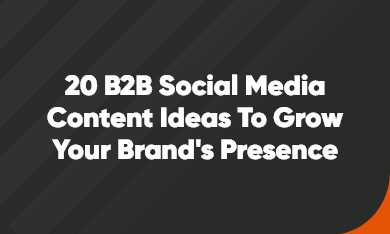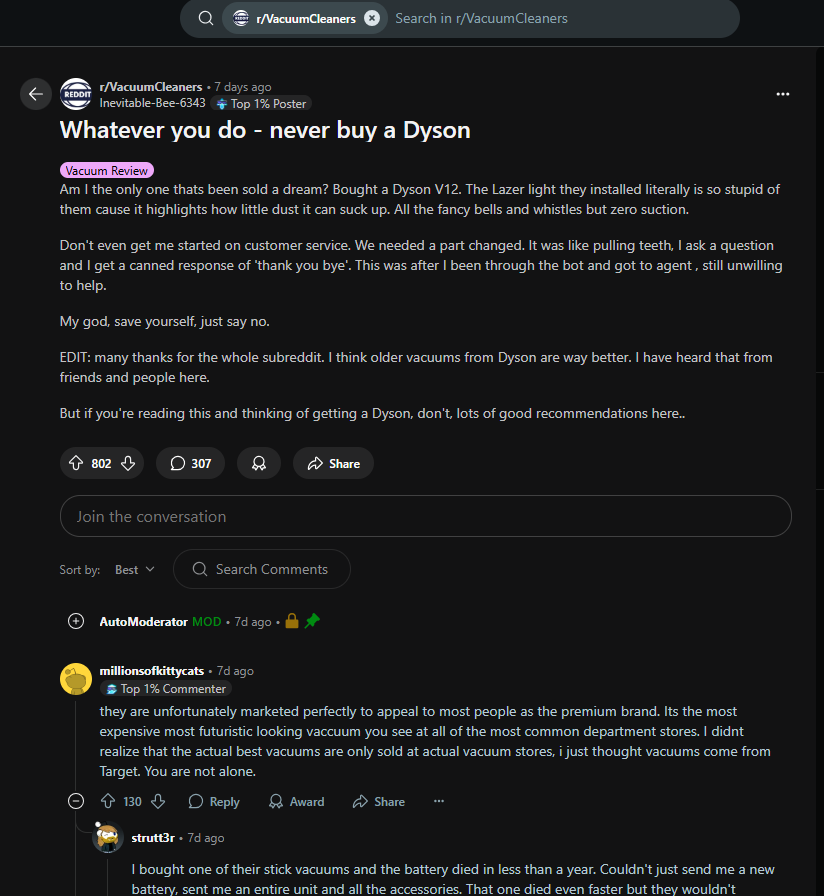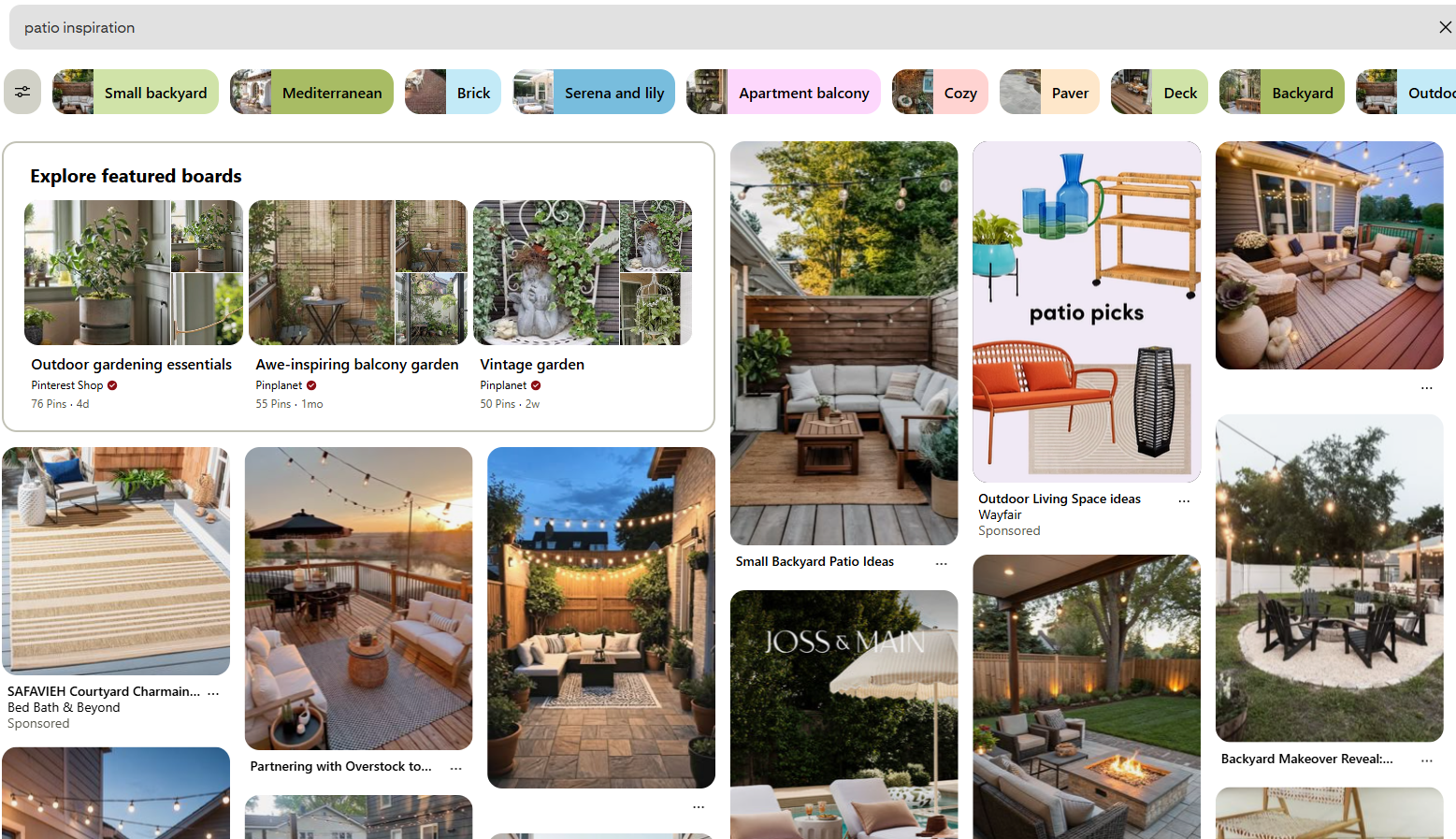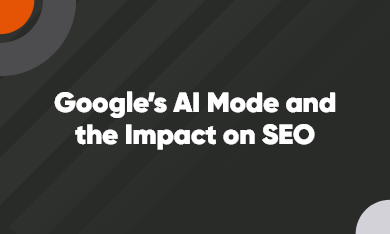
Social Media and the Search Landscape
The hot marketing topic right now is how AI is transforming search behavior, which is an extremely important topic, and one that we’ve talked about quite a bit recently.
But what about social media’s influence on search?
Social media is a huge search tool that doesn’t get talked about enough. The search landscape is made up of traditional search engines, but also social search and generative search. And users aren’t turning to just one of these tools to find everything they’re looking for. Instead, different platforms serve different purposes. So if you’re neglecting any one of them in your search strategy, you’re surely missing out on business opportunities.
How can you make sure you’re showing up everywhere your audience is searching for you? With a full-funnel content strategy that not only prioritizes search engine optimization, but also social media content optimization and generative engine optimization, all in one.
The rise of social search
Recent studies have found that over 40% of Gen Z users prefer to search on social media platforms like TikTok and Instagram over Google.
This is a pretty staggering number, and one that only continues to grow.
And it’s not just TikTok and Instagram that are important search tools. Reddit, X, Threads, and YouTube are all integral parts of the search landscape.
To deny the fact that social media is becoming a key search tool is to miss out on business, plain and simple.
How are users searching on social?
Social media garners searches that are more lifestyle-centric, like restaurant recommendations or decor inspiration, but the range of queries searched on social platforms is continuing to grow.
Here’s a quick breakdown of searches you’d typically see on popular social platforms:
|
Social Media Platform |
Types of Searches |
|
|
Style inspiration, product discovery, “how-to” tutorials, product reviews and hauls, and location-based recommendations like restaurants and travel |
|
|
Community-oriented content, trends and entertainment, location-based searches like restaurants and travel, brand and product discovery via the Explore page |
|
|
Product and service reviews, advice and guidance, and specific user experiences and stories |
|
|
“How-to” tutorials, product reviews and unboxings, explainer videos, and educational content |
|
|
Event planning, style or home inspiration, recipes and meal prep, vision boards, and goal-setting |
|
|
Local businesses and events |
|
|
Community threads, educational or thought leader content, product reviews, and commentary on current events and news |
|
|
Thought leader and educational content, professional guidance and lifestyle, industry news and trends, and product or service discovery |
TikTok and Instagram are great for finding new restaurants, learning about cool products like tools, makeup, clothes, and household items, and discovering local businesses.
Reddit is useful for reviews and recommendations around products or services.
YouTube is helpful for finding tutorials, getting reviews, and discovering products.
Clearly, there’s overlap between these platforms and what users are searching for. It’s highly dependent on which platforms the individual uses most as well as the creators they follow on each.
Why search on social?
Prior to the rise of generative search, users were becoming disenchanted with traditional search. We’ve all had that moment where we ask Google a question and stare blankly at the search results page in shock at just how off-base Google’s answers are. In fact, users claimed that Google's results were worsening and that SERPs just didn't fit user queries.
To make matters worse, Google’s SERPs are so crowded by ads, featured snippets, and now AI Overviews, that sometimes getting the right answer or feeling confident in the source of information can be tricky.
All that’s to say, users turned to social because they craved authentic content from real people, not just another marketing blog post (a little on the nose, we know) or sponsored listing.
The benefits of social search
On social media, users get something that they weren’t getting from traditional search engines: real recommendations and experiences from real people. What else sets social media as a search engine apart? Here are some of the pros:
Authentic content
Users are speaking from experience and sharing their true thoughts (most of the time), which can lead to trust from the creator and ultimately, a faster conversion.
Real people, real recommendations
Content is created by real people with the intention of sharing experience or educating an audience. Yes, this can get a little clouded in the age of the influencer, but more or less stays true. Take the below Reddit thread for example. Users are heading to this subreddit to learn why they should or shouldn't buy a Dyson or to weigh in on their own experiences with Dyson. This is a huge space for brands to be aware of. Conversations on social can hugely impact a brand, both positively and negatively.

Visual content
Search results on social media are a far cry from the results pulled on Google. Users can access first-person accounts of a product, watch a tutorial on how to do something, or get an in-depth recommendation of a service with pros and cons. Videos, images, and long-form text-based content all have a place on social.
Community engagement
People surround themselves with communities of other users they trust, so they have a group to go to when something comes up. This extends beyond the search bar in social media platforms; it’s happening in Facebook Groups, subreddits, and Instagram DMs, and it's a key place for conversation that can lead to referrals or product mentions—especially if said brand has shareable content and an updated profile.
Contextual results
AI is capitalizing on contextual results, but social media has been providing tailored results that aren’t heavily keyword-reliant for years. Searches are tailored to the user and influenced by the algorithm along with the actual query, making them much more useful.
Inspiration leads to conversion
On many social platforms, purchasing directly in-app is easy. And users who are looking for something specific are usually motivated to buy. So, whether a user is on TikTok searching for makeup trends or on TikTok looking for patio setup inspiration, the pipeline from gathering ideas for a patio refresh to purchasing a new patio set directly from a Pin is happening all the time.

Taking advantage of social search
So, it’s clear that users are searching, and more importantly, making decisions on social media platforms. How do you get in on the action?
Get active on more social channels
Yes, it’s obvious. To show up, you have to be there in the first place. But ultimately, you need to make sure your brand is in the right spot. You’ve heard it before but we’ll say it again: know where your audience is and focus on those channels first. Don’t prioritize TikTok if your audience isn’t using it. Research, evaluate, and act.
Craft a strong content strategy
You shouldn’t be posting the same content on every platform, and you shouldn’t be talking only about your brand. Use your social media profiles as channels for sharing educational or entertaining content that’s relevant to your business, and sprinkle in some more mid-to-bottom funnel content every once in a while. Ultimately, you should work on building a good following first before you start hard selling on social media.
Social media is a long game, and algorithms can continue serving your content long after it’s been posted. So continue posting, watch how your posts perform over time, and evaluate performance so you understand what’s working and what’s not.
Use captions and subtitles
Captions, subtitles, and alt text should be givens on any social post. Not only do you want everyone to be able to access your content, but you also don’t want to limit your audience. Adding captions and subtitles is a simple way to increase the accessibility of your social content, and most platforms allow you to auto-generate these things anyway. So use them!
Utilize keywords in audio and captions
Want to up your content discovery? Add keywords to your audio, captions, and hashtags. Don’t go overboard, but pick out a few key phrases that you think users would be searching for and add them to your messaging.
The value of social search for GEO and SEO
Having a strong presence on social media platforms isn’t only great for social discovery, but also for visibility in traditional search and in generative search results.
Google pulls results from social media platforms like Reddit and LinkedIn into its organic results, creating even more opportunity for organic discovery.
And generative engines use your brand’s social media profile and posts to understand more about what your business does, how your brand engages with customers, how customers and employees feel about your business, and more. LLMs can pull directly from social media, making your social presence important for generative engine optimization, too. For LLMs, your brand’s entire digital presence is pretty integral to getting mentioned. Information from across the internet, including on your website, social channels, and other sources, can dictate how LLMs perceive your brand, which in turn contributes to whether or not your brand gets recommended by LLMs.
To increase your potential to get mentioned in LLM results, make sure you’re staying true to your brand, posting content that aligns with your business and audience, and keeping your social presence up-to-date.
Putting it all together: a well-rounded search strategy
The way people search is forever changed and continues to evolve. So naturally, the way you optimize for search engines, whether traditional, social, or generative, needs to evolve, too.
All of these methods for searching are deeply intertwined, and your search visibility strategy should encompass more than just SEO. A well-rounded search strategy includes social search, generative search, and traditional search. Your audience is searching in more ways than ever before, and you need to show up wherever they’re looking for you.
Are you ready to go beyond Google Search? Contact us today to discuss how our team can elevate your online visibility in traditional search results and beyond.

Grace Hallen
Author
Grace Hallen
Categories
Date
Explore with AI
Join Our Newsletter


How to Measure the Success of Generative Engine Optimization Campaigns


Google’s AI Mode and the Impact on SEO


